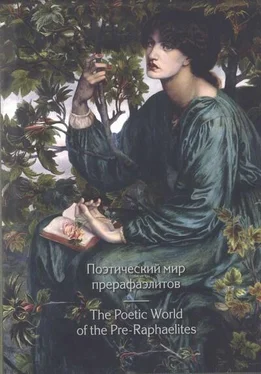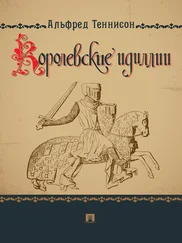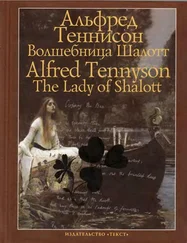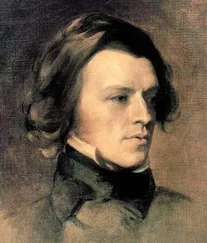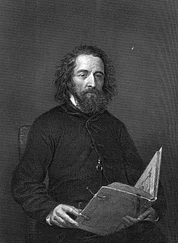Идет за осенью по склонам
Зима в холодной дымке синей,
И не дает раскрыться иней
Пожухнувшим бутонам.
Перевод Е. Третьяковой
Come to me in the silence of the night;
Come in the speaking silence of a dream;
Come with soft rounded cheeks and eyes as bright
As sunlight on a stream;
Come back in tears,
O memory, hope, love of finished years.
O dream how sweet, too sweet, too bitter sweet,
Whose wakening should have been in Paradise,
Where souls brimful of love abide and meet;
Where thirsting longing eyes
Watch the slow door
That opening, letting in, lets out no more.
Yet come to me in dreams, that I may live
My very life again though cold in death:
Come back to me in dreams, that I may give
Pulse for pulse, breath for breath:
Speak low, lean low
As long ago, my love, how long ago.
Приди ко мне в ночной тиши кромешной,
Приди в тиши, ожившей сонмом грез,
Приди в сиянье юности безгрешной
И над потоком слез
Пролей свой свет,
О, память, вера и любовь ушедших лет.
Как сладки эти грезы, слишком сладки —
До горечи — от них в раю очнусь,
Любви отдав всю душу без остатка,
Я там тебя дождусь —
У райских врат,
Что, раз впустив, не выпустят назад.
Приди ко мне из грез и снов, чтоб снова
Я ожила, отринув смертный хлад.
Приди, — я жизнью заплатить готова
За миг, за вздох, за взгляд —
Побудь со мной,
Как той весной, далекой той весной.
Перевод Е. Третьяковой
In my Autumn garden I was fain
To mourn among my scattered roses;
Alas for that last rosebud which uncloses
To Autumn’s languid sun and rain
When all the world is on the wane!
Which has not felt the sweet constraint of June,
Nor heard the nightingale in tune.
Broad-faced asters by my garden walk,
You are but coarse compared with roses:
More choice, more dear that rosebud which uncloses
Faint-scented, pinched, upon its stalk,
That least and last which cold winds balk;
A rose it is though least and last of all,
A rose to me though at the fall.
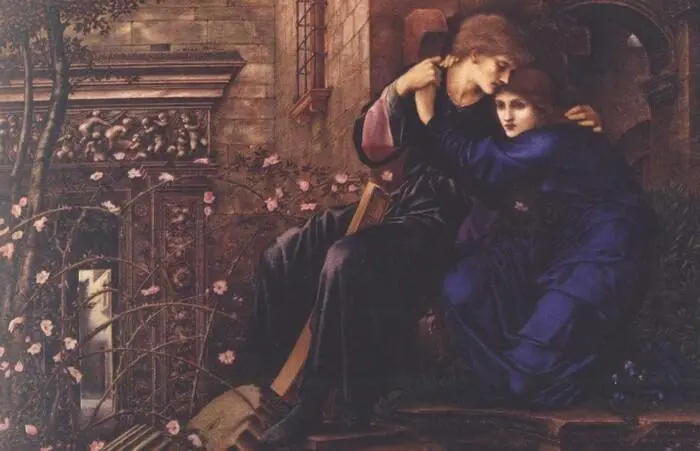
Sir Edward Coley Burne-Jones LOVE AMONG THE RUINS Oil on canvas. 1894 Wightwick Manor, Wolverhampton
Эдуард Коули Бёрн-Джонс ЛЮБОВЬ СРЕДИ РУИН Холст, масло. 1894 Уайтвик-мэнор, Уолверхэмптон
Зачем раскрылся маленький бутон
В саду осеннем, где опали розы,
Где вместо солнца лишь дожди и грозы?
Холодными ветрами сбережен,
В саду осеннем не узнает он
О том, как мир в июне был чудесен
И ночь полна тепла и птичьих песен.
Широколицым астрам на земле
Еще цвести, аллеи украшая,
Но мне милее роза небольшая,
Забытая на тоненьком стебле,
Последняя в холодном октябре, —
Последняя, но даже здесь, у края
Она осталась розой, умирая.
Перевод Е. Коробковой
Morning and evening
Maids heard the goblins cry:
‘Come buy our orchard fruits,
Come buy, come buy:
Apples and quinces,
Lemons and oranges,
Plump unpecked cherries,
Melons and raspberries,
Bloom-down-cheeked peaches,
Swart-headed mulberries,
Wild free-born cranberries,
Crab-apples, dewberries,
Pine-apples, blackberries,
Apricots, strawberries; —
All ripe together
In summer weather, —
Morns that pass by,
Fair eves that fly;
Come buy, come buy:
Our grapes fresh from the vine,
Pomegranates full and fine,
Dates and sharp bullaces,
Rare pears and greengages,
Damsons and bilberries,
Taste them and try:
Currants and gooseberries,
Bright-fire-like barberries,
Figs to fill your mouth,
Citrons from the South,
Sweet to tongue and sound to eye,
Come buy, come buy.’
Evening by evening
Among the brookside rushes,
Laura bowed her head to hear,
Lizzie veiled her blushes:
Crouching close together
In the cooling weather,
With clasping arms and cautioning lips,
With tingling cheeks and finger tips.
‘Lie close,’ Laura said,
Pricking up her golden head:
‘We must not look at goblin men,
We must not buy their fruits:
Who knows upon what soil they fed
Their hungry thirsty roots?’
‘Come buy,’ call the goblins
Hobbling down the glen.
‘O,’ cried Lizzie, ‘Laura, Laura,
You should not peep at goblin men.’
Lizzie covered up her eyes,
Covered close lest they should look;
Laura reared her glossy head,
And whispered like the restless brook:
‘Look, Lizzie, look, Lizzie,
Down the glen tramp little men.
One hauls a basket,
One bears a plate,
One lugs a golden dish
Of many pounds weight.
How fair the vine must grow
Whose grapes are so luscious;
How warm the wind must blow
Through those fruit bushes.’
‘No,’ said Lizzie: ‘No, no, no;
Their offers should not charm us,
Their evil gifts would harm us.’
She thrust a dimpled finger
In each ear, shut eyes and ran:
Curious Laura chose to linger
Wondering at each merchant man.
One had a cat’s face,
One whisked a tail,
One tramped at a rat’s pace,
One crawled like a snail,
One like a wombat prowled obtuse and furry,
One like a ratel tumbled hurry skurry.
She heard a voice like voice of doves
Cooing all together:
They sounded kind and full of loves
In the pleasant weather.
Laura stretched her gleaming neck
Like a rush-imbedded swan,
Like a lily from the beck,
Like a moonlit poplar branch,
Like a vessel at the launch
When its last restraint is gone.
Backwards up the mossy glen
Turned and trooped the goblin men,
With their shrill repeated cry,
‘Come buy, come buy.’
When they reached where Laura was
They stood stock still upon the moss,
Leering at each other,
Brother with queer brother;
Signalling each other,
Brother with sly brother.
One set his basket down,
One reared his plate;
One began to weave a crown
Of tendrils, leaves, and rough nuts brown
(Men sell not such in any town);
One heaved the golden weight
Of dish and fruit to offer her:
‘Come buy, come buy,’ was still their cry.
Laura stared but did not stir,
Longed but had no money:
The whisk-tailed merchant bade her taste
In tones as smooth as honey,
The cat-faced purr'd,
The rat-paced spoke a word
Of welcome, and the snail-paced even was heard;
One parrot-voiced and jolly
Cried ‘Pretty Goblin’ still for ‘Pretty Polly;’ —
One whistled like a bird.
Читать дальше
